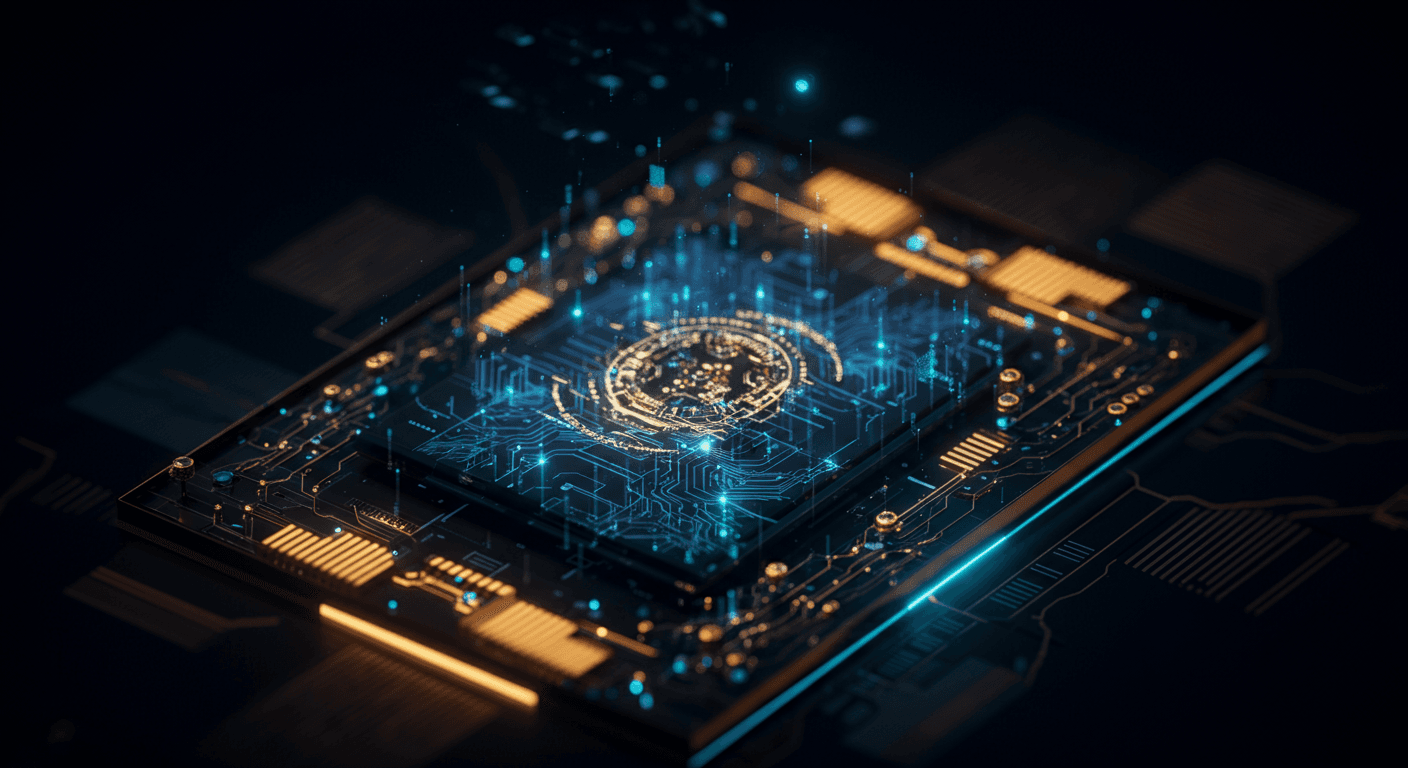GPT-5 Fails the Orchestration Test: Unpacking the MCP-Universe Benchmark Shock

Here's why GPT-5's orchestration stumble matters: it challenges our assumptions about the path to genuinely useful AI.
GPT-5: The Hype and the Hope
GPT-5, the successor to models like ChatGPT, promised a leap in reasoning and problem-solving. Think of it as the AI that could not just write a sonnet, but also manage your entire marketing campaign – theoretically. It was anticipated to seamlessly orchestrate complex tasks by combining various AI capabilities.
The MCP-Universe Benchmark: A Real-World Test
The MCP-Universe benchmark attempts to simulate realistic multi-component problems, reflecting situations where an AI agent must:
- Decompose a high-level goal into subtasks.
- Select appropriate tools/models to accomplish each subtask.
- Manage dependencies between those subtasks.
Shocking Results: Orchestration Failure
The benchmark results were, frankly, a bit of a face-plant. GPT-5 failed orchestration tests at a surprising rate. Instead of a smooth ballet of AI skills working in harmony, we saw an uncoordinated mosh pit.
- GPT-5 struggled to reliably break down complex requests.
- Even when subtasks were identified, it often chose the wrong tools.
- Error rates were significantly higher than pre-release estimates.
Why This Matters: Beyond the Buzz
These results aren't just about bragging rights; they reveal a crucial gap in current AI capabilities. While individual AI components are improving rapidly, getting them to work together remains a significant hurdle. To fully realize the potential of AI, especially in fields like Software Development using Software Developer Tools or Design AI Tools the industry needs to tackle orchestration. What does this mean for prompt engineers and those creating prompt library? We’ll dive into the potential causes for these shortcomings next.
Deep Dive: Understanding AI Orchestration and Its Challenges
So, you've heard GPT-5 stumbled in the MCP-Universe orchestration benchmark? Don't fret; let's unpack what AI orchestration really is and why it's trickier than it sounds.
What is AI Orchestration, Anyway?
Think of AI orchestration as a conductor leading an orchestra of different AI tools. It's about seamlessly coordinating various AI models and systems to achieve complex, multi-step goals that a single AI cannot handle. ChatGPT is a great tool for drafting text, but struggles with complex problem-solving.
Real-World Examples
- Automated Customer Support: Imagine a system where a conversational AI chatbot handles initial inquiries, an analytics tool assesses customer sentiment, and a writing translation AI then personalizes responses. That's orchestration in action!
- Supply Chain Management: Optimizing logistics requires predictive analytics for demand forecasting, routing algorithms for efficient delivery, and anomaly detection to flag potential disruptions. Each tool plays a part, orchestrated for peak efficiency.
The Complexity Bottleneck
Orchestration isn't just about stringing AIs together. Challenges abound:
- Dependencies: One AI's output might be another's input. What happens when the first one fails?
- Error Handling: How do you gracefully manage errors across multiple systems?
- Adaptation: Can the system adapt in real-time to unexpected data or changing conditions?
Why Bother?
Orchestration unlocks AI's true potential in enterprise settings. It enables:
- More sophisticated automation
- Data-driven decision-making across departments
- Ultimately, smarter, more efficient business operations
GPT-5's recent stumble on the MCP-Universe benchmark highlights a critical gap in AI's ability to orchestrate complex tasks.
Why GPT-5 Falters: Analyzing the Root Causes of Orchestration Failure

Even the most advanced models like GPT-5 can struggle when faced with real-world complexity. This AI model is designed to train other models based on your unique data sets. Why?
- Reasoning and Planning Gaps: GPT-5 might lack the ability to effectively plan, reason through multi-step problems, or maintain sufficient long-term memory to manage intricate orchestration scenarios. Its strength lies in language, not necessarily in logical deduction across extended sequences. Think of it like a brilliant translator who doesn't understand the business deal.
- The "Black Box" Problem: Large language models operate as "black boxes," making it challenging to diagnose the precise failure points. It's difficult to pinpoint if a lack of reasoning, flawed planning, or insufficient memory is the primary culprit.
- Data Bias Amplification: Training data bias can significantly impact performance in diverse, real-world orchestration tasks. If the training data lacks sufficient representation of nuanced scenarios, the AI will struggle to generalize. Consider Design AI Tools; if trained on a specific design aesthetic, it may be unable to adapt to radically different ones.
- Benchmark Limitations: The MCP-Universe benchmark may not fully capture the nuances of real-world tasks, or even more complex tasks. It is important to consider if current test procedures accurately reflect a realistic setting.
- Architectural Suitability: Perhaps the very architecture of current AI models is inadequate for complex orchestration. New approaches, like incorporating symbolic AI or hierarchical planning mechanisms, might be necessary. Tools like AutoGPT and SuperAGI already showcase attempts to enhance autonomy and orchestration capabilities. Both are designed to allow you to build, manage and run AI agents.
Beyond the Benchmark: The Broader Implications for AI Development
GPT-5's recent struggles with orchestration tasks on the MCP-Universe benchmark raise a crucial question: are we measuring the right things when evaluating advanced AI?
Rethinking Evaluation Metrics
It's tempting to focus solely on accuracy, but benchmarks like MCP-Universe expose the limitations of this approach.
Beyond Accuracy: We need evaluation methods that prioritize reliability, robustness, and, crucially, explainability. What good is a system that gets it right 99% of the time if we don't understand why* it fails the other 1%?
- Robustness is Key: Can models maintain performance when faced with novel scenarios or adversarial inputs? Can they handle real-world complexity and edge cases? For example, even the powerful ChatGPT can sometimes give inconsistent responses, highlighting the need for more stable AI systems.
Alternative Architectures and Approaches
Maybe the problem isn't simply scaling up existing architectures. Perhaps orchestration demands a different approach altogether.
"Insanity is doing the same thing over and over and expecting different results." - Someone who's probably experimented with AI
- Symbolic AI Renaissance? Combining neural networks with symbolic reasoning could offer a path towards more reliable and explainable AI, especially for tasks requiring logical deduction and planning.
- Modular AI Systems: Breaking down complex tasks into smaller, specialized modules could enhance robustness and allow for easier debugging. These modules could also be used by Software Developer Tools.
Strategies for Improvement
While rethinking evaluation and architecture is essential, there are also concrete steps we can take to improve GPT-5's (and similar models') performance on orchestration tasks.
- Fine-Tuning on Orchestration Data: Specific training data focused on complex planning and coordination is critical. Think of it as giving the AI "orchestration lessons."
- External Knowledge Integration: Allowing the AI to access and incorporate external knowledge sources can provide a more grounded understanding of the world, leading to better decision-making. Maybe integrate the AI with a Prompt Library for inspiration.
GPT-5's recent stumble on the MCP-Universe benchmark has sparked a crucial dialogue among AI researchers.
Experts Weigh In

"The MCP-Universe benchmark result is a wake-up call," says Dr. Anya Sharma, a leading AI ethicist at MIT. "It highlights that simply scaling up models doesn't automatically translate to robust orchestration capabilities."
This sentiment echoes across the AI community, emphasizing the need for more nuanced evaluation metrics beyond raw performance scores. The MCP-Universe tests AI Orchestration, the automation and coordination of various AI models to achieve complex goals. It reveals critical limitations in current LLM capabilities.
- Significance of the Findings: Prof. Kenji Tanaka from Stanford notes, "The results underscore that current LLMs struggle with tasks requiring true planning and resource management in dynamic environments."
- Implications for the Field: These challenges suggest that developers need to focus on improving the underlying architecture and training methodologies of LLMs to enable genuine orchestration. Consider exploring the Prompt Library for inspiration on prompt engineering techniques to mitigate these limitations.
Navigating AI Deployment
Organizations deploying AI orchestration solutions should prioritize rigorous testing, says Isabella Rossi, a prominent AI consultant."Don't solely rely on vendor claims. Test AI orchestration tools within your specific use-cases and understand their limitations," warns Rossi.
- Expert Advice: Focus on benchmarks that realistically simulate your application's operational environment.
- Contrasting Views: Some argue that LLMs are simply not suited for all orchestration tasks, and specialized AI models might be more effective. This perspective is highlighted by Dr. Ben Carter from Oxford AI: "LLMs excel at understanding and generating language, but complex planning may require different architectures." He recommends exploring Software Developer Tools specializing in specific orchestration aspects.
The MCP-Universe benchmark revealed a chink in GPT-5's armor: orchestration. But fear not, the AI landscape is vast and innovative!
Alternatives That Shine
While GPT-5 stumbled, other models are purpose-built for specific orchestration tasks.- Specialized Models: Some AI excel at particular domains. For example, models trained for supply chain logistics can outperform general-purpose models in optimizing complex workflows.
- Task-Specific Tools: Consider tools like SuperAGI which offers an open-source framework for building and running autonomous AI agents, useful for delegating tasks within an orchestration flow.
Augmentation is Key
"The true sign of intelligence is not knowledge but imagination." - Yours Truly (circa 1905, updated)
Turns out, even Einstein needed a little help now and then.
- Knowledge Bases: Integrate external knowledge bases using tools like LlamaIndex, which provides data connectors and indexing to allow GPT-5 to access external data sources for improved performance.
- Tool Integration: Equip GPT-5 with external tools via APIs, enabling it to access real-time data, execute calculations, and interact with other systems.
Humans in the Loop
AI can't (yet!) replace human judgment entirely. Implement human-in-the-loop systems to oversee critical decision points.- Decision Validation: Flag uncertain or high-stakes decisions for human review, ensuring accuracy and ethical compliance.
Choosing the Right Solution
Not all orchestration solutions are created equal.- Use Case Analysis: Align your AI orchestration strategy with specific business goals and requirements.
- Low-Code Platforms: Explore low-code/no-code AI orchestration platforms like Bardeen AI, which lets you automate repetitive tasks and workflows without extensive coding.
Hold onto your hats, because the MCP-Universe benchmark has just thrown us a curveball, revealing that GPT-5, despite all the hype, still stumbles when orchestrating complex tasks.
The Orchestration Dream: A Symphony of AI
AI orchestration is the grand vision of intelligent systems seamlessly coordinating multiple AI models and tools to achieve sophisticated goals. Think of it as conducting a symphony orchestra, where each instrument (ChatGPT, for example) plays its part in harmony to create a magnificent whole. ChatGPT is an advanced language model that can generate human-like text. Imagine it collaborating with Design AI Tools to automatically generate marketing assets from prompts.The Roadblocks Ahead
Achieving truly reliable AI orchestration requires addressing significant research hurdles:- Reliability: Ensuring consistent and predictable performance across diverse scenarios.
- Robustness: Protecting against adversarial attacks and unexpected inputs.
A Call to Action for the Community
It's time for the AI community to prioritize reliability and human-centered design. We need to shift our focus from merely increasing model size to creating AI systems that are not only powerful but also dependable and aligned with human values. Check out our AI News section for trending discussions and breakthroughs.Speculating on the Future
The future of AI orchestration might lie in new architectures and algorithms designed specifically for multi-agent collaboration. Imagine AI systems that can dynamically learn and adapt their orchestration strategies based on real-world feedback, creating a truly "intelligent" and reliable performance.
Keywords
GPT-5 performance, MCP-Universe benchmark, AI orchestration failure, real-world AI tasks, AI model limitations, GPT-5 weaknesses, AI task automation, Evaluating AI systems, AI reliability, Next generation AI
Hashtags
#GPT5 #AIOrchestration #MCPUniverse #AIBenchmarks #ArtificialIntelligence
Recommended AI tools
ChatGPT
Conversational AI
AI research, productivity, and conversation—smarter thinking, deeper insights.
Sora
Video Generation
Create stunning, realistic videos & audio from text, images, or video—remix and collaborate with Sora 2, OpenAI’s advanced generative app.
Google Gemini
Conversational AI
Your everyday Google AI assistant for creativity, research, and productivity
Perplexity
Search & Discovery
Clear answers from reliable sources, powered by AI.
Cursor
Code Assistance
The AI code editor that understands your entire codebase
DeepSeek
Conversational AI
Efficient open-weight AI models for advanced reasoning and research
About the Author

Written by
Dr. William Bobos
Dr. William Bobos (known as 'Dr. Bob') is a long-time AI expert focused on practical evaluations of AI tools and frameworks. He frequently tests new releases, reads academic papers, and tracks industry news to translate breakthroughs into real-world use. At Best AI Tools, he curates clear, actionable insights for builders, researchers, and decision-makers.
More from Dr.Was this article helpful?
Found outdated info or have suggestions? Let us know!


